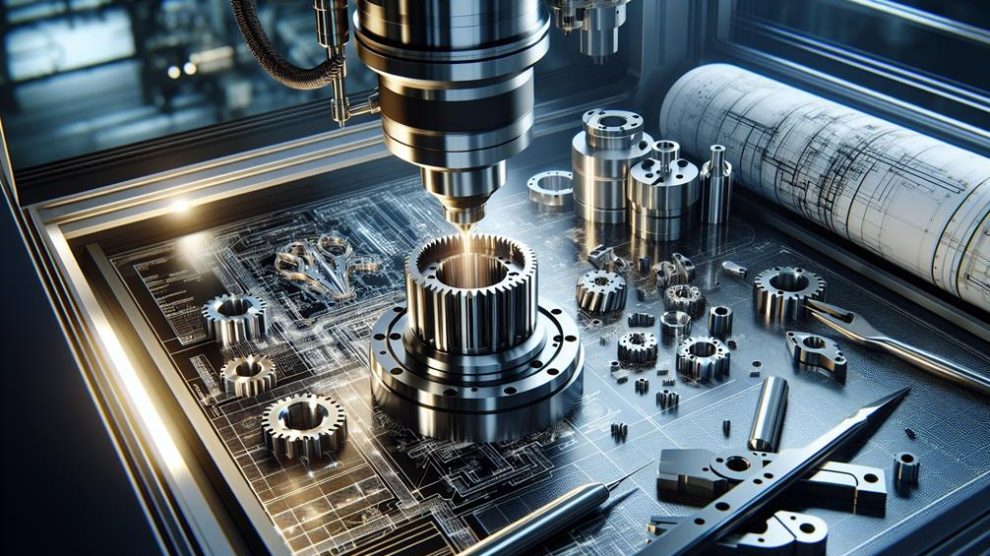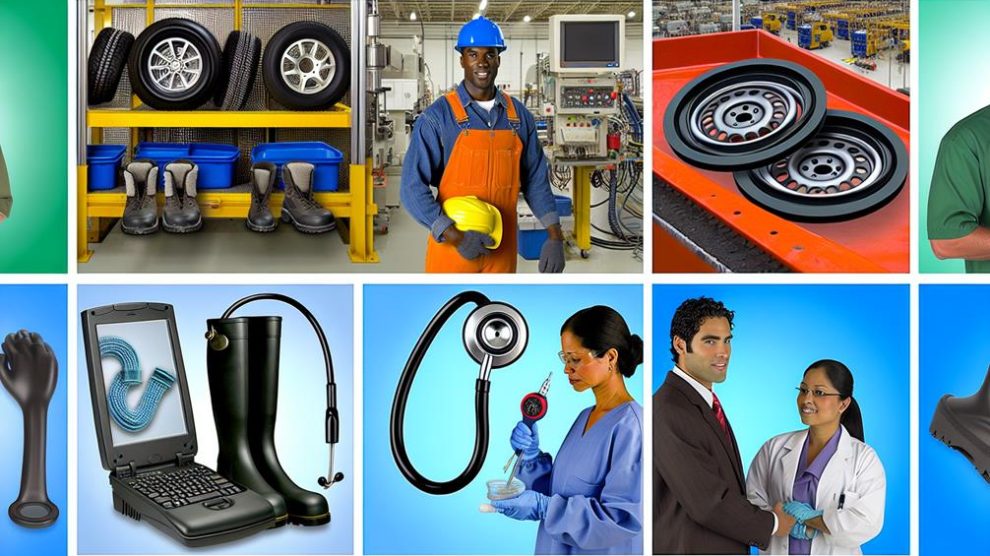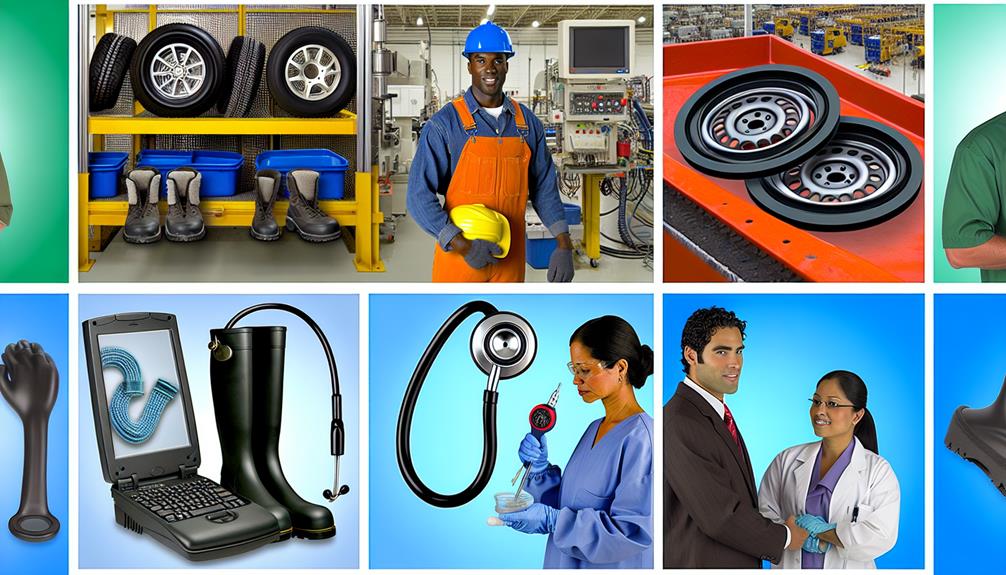Hogge Precision leads the precision manufacturing industry by leveraging advanced CNC machining technology, including state-of-the-art 7 & 8-axis turning centers and Swiss-style screw machines. Their commitment to quality is underscored by rigorous ISO 9001:2015 standards and a full quality lab, achieving a remarkable 99.8% compliance rate on over 7,725 shipments annually. Additionally, they prioritize exceptional customer service, ensuring your needs are met efficiently with a dedicated team ready to tackle inquiries. These elements seamlessly combine to create a manufacturing powerhouse. To understand how they stay ahead of the curve, you might find the following insights particularly enlightening.

Overview of Hogge Precision
Hogge Precision Parts Co., Inc. stands out as a leader in contract manufacturing, leveraging advanced CNC and screw machining technology to deliver high-quality products that meet the evolving demands of diverse industries. Founded in 1989 by Danny Hogge Sr., the company started as a traditional screw machine job shop. Over the years, it evolved to CNC machining, which has greatly enhanced its production capabilities and efficiency.
The company’s manufacturing facilities span 42,000 square feet and house a wide range of equipment, including 7 & 8-axis CNC turning centers, Swiss-style CNC screw machines, and multi-spindle screw machines. This state-of-the-art technology enables Hogge Precision to maintain rigorous quality standards and respond swiftly to market demands.
In 2009, Hogge embraced innovative practices by utilizing CNC equipment for nighttime production, optimizing resource use. This evolution reflects the company’s commitment to continuous improvement and operational excellence. Overall, Hogge Precision’s rich company history combined with its advanced manufacturing facilities has solidified its reputation as a reliable partner for precision machined components across various industries, ensuring customer satisfaction through consistent quality and timely delivery.
Advanced Machining Capabilities
Leveraging a robust array of advanced machining capabilities, Hogge Precision Parts Co., Inc. consistently meets the intricate demands of precision manufacturing across various sectors. Your operations benefit from automation advantages that enhance efficiency and reduce production times. By integrating cutting-edge technology into our processes, we maximize output while minimizing waste, ensuring you receive high-quality products in a timely manner.
Our manufacturing facility is equipped with state-of-the-art 7 & 8-axis CNC turning centers and Swiss-style CNC screw machines, allowing for complex geometries and tight tolerances that are vital in today’s competitive landscape. The use of automated bar loaders and robotic systems further streamlines operations, enabling lights-out manufacturing capabilities that operate unattended and optimize productivity.
Additionally, our commitment to innovation means we continuously evaluate and adopt emerging technologies, ensuring you receive components crafted with the latest advancements in machining. This proactive approach not only enhances our production capabilities but also positions us to adapt to the evolving needs of your industry. With Hogge Precision, you’re not just choosing a manufacturer; you’re partnering with a leader in advanced machining solutions.
Commitment to Quality
Quality isn’t just a goal at Hogge Precision; it’s an integral part of every process, ensuring that each component meets the highest standards before reaching your hands. At Hogge, we employ a rigorous quality assurance system, rooted in ISO 9001:2015 standards, to maintain consistency and excellence throughout our operations. This commitment isn’t merely about meeting specifications; it’s about exceeding your expectations.
Our advanced technologies and skilled technicians work in tandem to enhance production efficiency. By integrating automated processes, we streamline workflows, reducing the potential for human error and ensuring every product is meticulously checked before shipment. Our full quality lab, equipped with optical comparators and CMM systems, plays an essential role in our quality assurance efforts, allowing us to verify that each component adheres to precise tolerances.
This unwavering focus on quality not only guarantees a superior product but also enhances production efficiency, enabling us to fulfill over 7,725 shipments annually with a 99.8% compliance to quality requirements. When you choose Hogge Precision, you’re not just selecting a manufacturer; you’re partnering with a leader committed to delivering excellence at every level.
Exceptional Customer Service
Delivering outstanding customer service is at the core of Hogge Precision’s operations, guaranteeing that every client receives tailored support and timely responses to their needs. This commitment directly impacts customer satisfaction, as you’ll find a dedicated team ready to address inquiries and resolve issues efficiently.
Hogge Precision utilizes a systematic approach to problem resolution, leveraging advanced technology and skilled personnel to maintain open lines of communication. When you encounter challenges, the team actively engages with you to understand the specifics and develop effective solutions. This proactive stance not only expedites resolution but also enhances your overall experience with the company.
With an ISO 9001:2015 QMS registered system in place, Hogge Precision assures that every aspect of customer interaction meets stringent quality standards. This framework supports continuous improvement in service delivery, guaranteeing your needs are met consistently.
Ultimately, by prioritizing exceptional customer service, Hogge Precision not only secures customer loyalty but also positions itself as a leader in precision manufacturing. You can rely on their commitment to excellence to ensure your projects are handled with the utmost care and precision.


